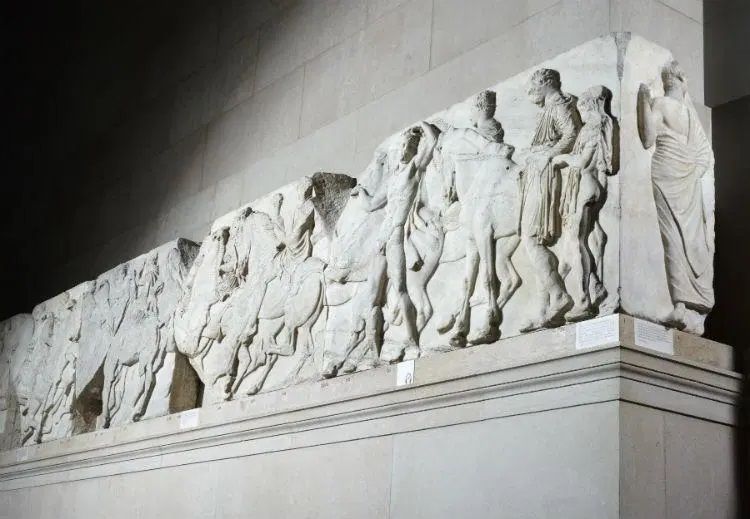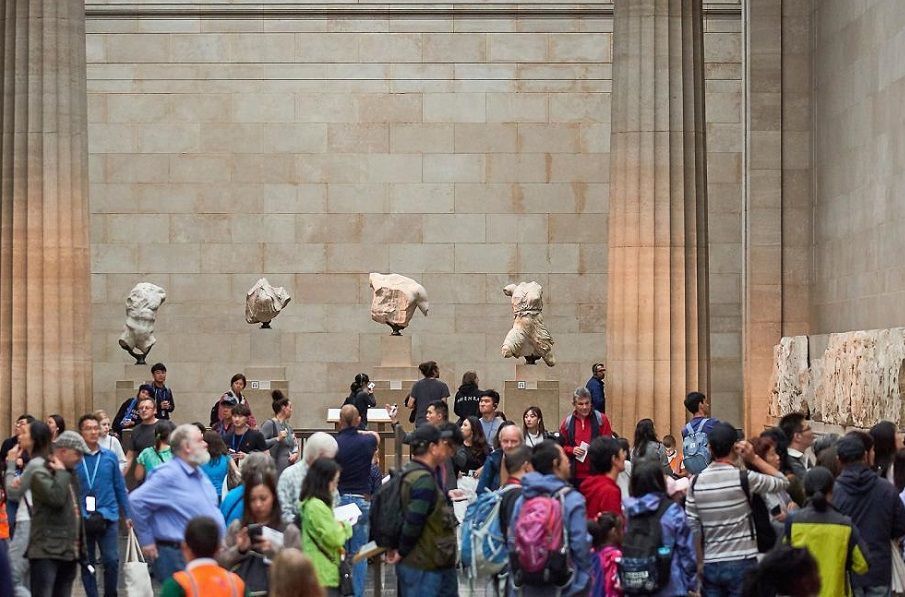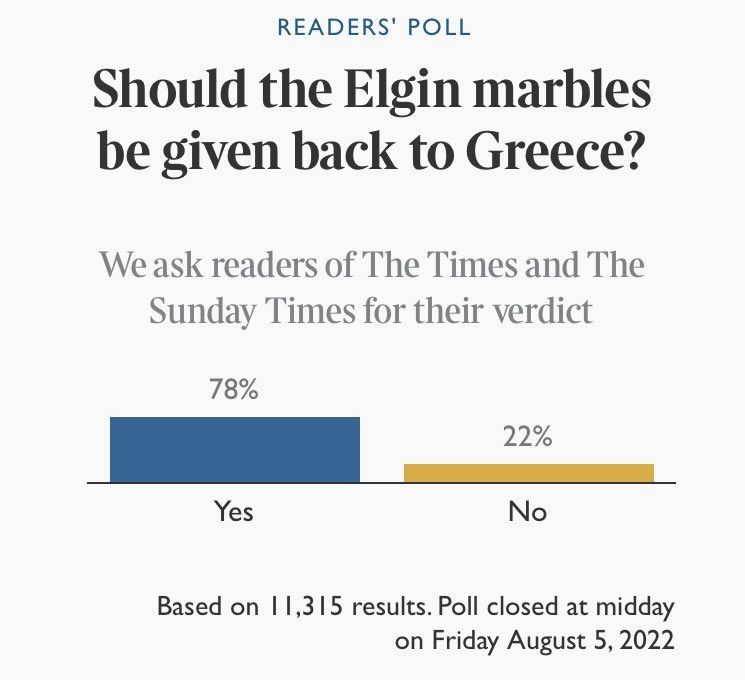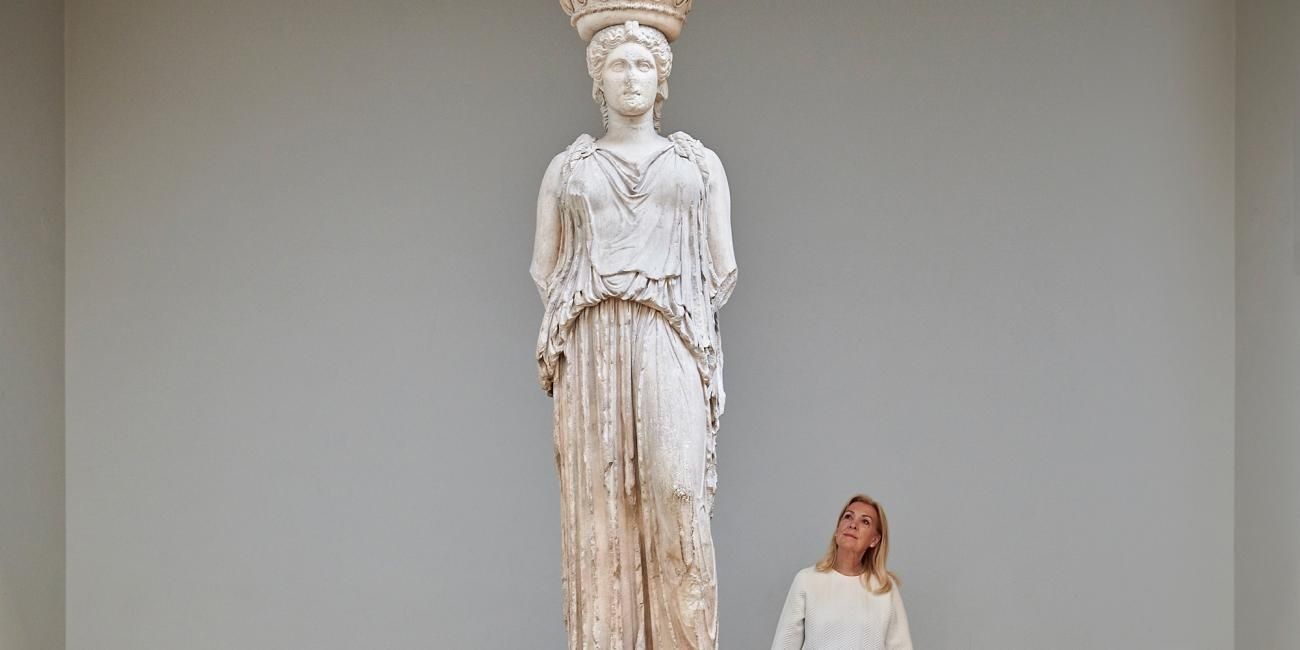‘London Times’ Readers: Give the Parthenon Marbles Back to Greece
“Should the Elgin (Parthenon) Marbles be given back to Greece?” Well, yes, says the British public, according to a poll carried last week among The Times and Sunday Times readers.
The majority or 78 percent of those polled last week said “yes” to the return of the ancient works of art to their birthplace Greece, placing even more pressure on the British Museum, where the 2,500-year-old sculptures are being hosted attracting thousands of visitors each year and millions of British pounds.
Of the poll’s 11,315 participants, 22 percent felt the Marbles, unlawfully torn off the Parthenon – an UNESCO World Heritage site – by Lord Elgin in the 1800s and sold to the British Museum, should remain in the UK.
It should be noted that the survey comes after mounting efforts by Greece and the international community not to mention UNESCO and other heritage organizations for the repatriation of the Parthenon Sculptures to their place of origin and to the Acropolis Museum.
At the same time, the poll and recent articles published in the London Times indicate a turnabout by the publication which for many decades has supported the British Museum in the ongoing dispute.
In another step forward on the issue, the British Museum’s deputy director, Jonathan Williams, told the Sunday Times, last week that the institution was hoping to “change the temperature of the debate”, proposing an “active Parthenon partnership” with Greece.
“I firmly believe there is space for a really dynamic and positive conversation within which new ways of working together can be found,” Williams said.
In response to Williams, Greek archaeologist Nikolaos Stampolidis, the director of the Acropolis Museum, where Greek authorities hope to host the valuable sculptures upon return, said there could be a “basis for constructive talks”, adding that the repatriation of the sculptures would be an act of history.
In the meantime, digital archeologist Roger Michel has stepped forward with what he believes will solve the dispute. Michel and his team at the Institute for Digital Archaeology (IDA) in Oxford, England, are proposing that the British Museum replace the Parthenon Marbles with exact replica marble carvings reproduced by 3D (CNC) machining.

Marble relief (Block XLVII) from the North frieze of the Parthenon. Athens, 438–432 BC., Photo source: British Museum
Last year, a poll by Britain’s YouGov asked participants where they believed the Parthenon Marbles belong. More than half (59 percent) said “Greece”, while nearly half (49 percent) of Conservative Party voters also said the ancient sculptures belong to Greece.
A year ago, the British Museum, which had claimed in the past that Greece had no place to host, preserve, care and exhibit the Greek art works “safely”, was slammed for the terrible conditions of its “Greek” galleries with media publishing photos depicting a leaking roof and water seeping into seven galleries featuring items including the Parthenon Sculptures.







